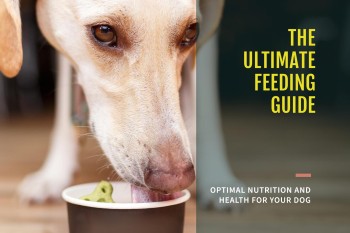Can Dogs Eat Fruit?
Healthy Options for Your Pup 🐶🍎
Fruit can be a healthy
snack for dogs when given in moderation. Certain fruits provide vitamins,
minerals, and antioxidants that can benefit your dog's health. However, some
fruits may not be suitable for dogs and can cause gastrointestinal upset. This
article provides a complete guide to feeding dogs fruits safely.
An Overview of Fruits for Dogs
Fruits contain
important nutrients, including:
·
Vitamin C - Boosts
immunity and antioxidant status.
·
Potassium - Supports
blood pressure and kidney function.
·
Fiber - Aids digestion
and weight management.
·
Antioxidants - Reduce
inflammation and cellular damage.
Additionally, their
sweet taste makes fruit naturally appealing to dogs. Fruits to consider feeding
your dog include:
Top Fruits for Dogs
·
Apples - Rich in
vitamin C and fiber.
·
Bananas - Provide
potassium and vitamin B6.
·
Blueberries - Loaded
with antioxidants.
·
Cantaloupe - Contains
vitamin A and potassium.
·
Mango - High in
vitamins A, B6, and C.
·
Watermelon - Made up
of 92% water and electrolytes.
·
Pumpkin - Has fiber to
support digestion.
·
Coconut - Supplies
healthy fats and fiber.
Fruits to Avoid
·
Grapes & Raisins -
Can cause kidney failure in dogs.
·
Citrus - Too acidic
for dogs and may cause GI issues.
·
Persimmons - High
tannin content can induce vomiting and diarrhea.
·
Cherries - Contains
poisonous cyanide to dogs when pitted.
When feeding fruits,
always monitor for signs of an allergic reaction or intestinal upset. Introduce
new fruits slowly and in moderation. Remove rinds, peels, pits, and seeds, as
these can present a choking hazard or contain toxins.
Health Benefits of Fruits for Dogs
Certain fruits provide
key nutrients, fiber, and phytochemicals that offer the following health
benefits:
1. Support Heart Health 🫀
Potassium found in
bananas, melons, and coconut helps regulate electrolyte and fluid balance,
supporting healthy blood pressure. Antioxidants in berries improve blood vessel
function.
2. Aid Digestion 🫁
Fruits high in fiber
like apples, pumpkin, and coconut improve gut motility and bulk up stool. This
allows regular bowel movements and prevents constipation.
3. Boost Immunity 🦠
The vitamin C content
in fruits strengthens the immune system and prevents disease. Mangoes and
cantaloupe provide vitamin A to help fight infection.
4. Improve Skin & Coat 🐶
The vitamin A in
cantaloupe promotes skin and coat health. Essential fatty acids in coconut
moisturize skin and reduce dandruff. Antioxidants in berries reduce skin
inflammation.
5. Support Dental Health 🦷
The chewing action on
fibrous fruits like apples helps clean tartar off teeth and gums. This reduces
plaque buildup and prevents periodontal disease.
6. Aid Weight Management 💪
Fruits like watermelon
and berries are naturally low in calories. Their fiber and water content
provides satiety to prevent overeating.
7. Provide Antioxidants 🫀
The anthocyanins in
blueberries and polyphenols in cherries and citrus act as antioxidants. This
reduces free radical damage to cells and lowers inflammation.
When choosing fruits,
opt for fresh, ripe varieties for peak nutrition content. Canned fruits packed
in syrup or juice contain added sugars.
Fruits to Feed Dogs & Recipes
Here are some of the
best fruits to feed dogs along with serving information and recipe ideas:
Apples
Apples provide vitamin
C, antioxidants, and fiber. Feed small, peeled, and cored apple slices to your
dog. Avoid seeds, which contain trace amounts of cyanide.
Recipe Idea:
Add shredded apples to plain yogurt or cottage cheese.
Bananas
Bananas offer
potassium, vitamin B6, and fiber. Feed peeled bananas sliced into coins. Select
ripe but not overly brown or mushy bananas.
Recipe Idea:
Make frozen banana bites by freezing mashed banana in an ice cube tray for a
cool treat.
Blueberries
These berries provide
vitamin C, manganese, and antioxidants. Feed fresh or frozen blueberries, as
freeze-dried contain added sugar. Give 1-2 tablespoons for small dogs, 1/4 cup
for large breeds.
Recipe Idea:
Mix blueberries into Greek yogurt.
Cantaloupe
This melon contains
carotenoids like vitamin A, vitamin C, potassium, and folate. Feed small wedges
with rinds removed. Avoid feeding the seeds and stems.
Recipe Idea:
Add cubed cantaloupe to a fruit salad with banana slices, berries, and apple
chunks.
Mango
Mangoes provide
vitamins A, B6, and C. Peel the mango and cut the flesh away from the large
central pit. Feed slices or cubes to your dog.
Recipe Idea:
Make mango pops by pureeing mango with coconut milk and freezing in an ice cube
tray with popsicle sticks.
Pumpkin
Canned unsweetened
pumpkin offers fiber to aid digestion. Check the label to confirm it contains
only pumpkin. Give 1-4 tablespoons depending on your dog's size.
Recipe Idea:
Add canned pumpkin to oatmeal or cottage cheese for an extra boost of fiber.
Watermelon
Made up of mostly
water and electrolytes, watermelon hydrates dogs. Feed seedless varieties and
avoid rinds which are difficult to digest. Give small wedged or cubed pieces.
Recipe Idea:
Make fruit ice cubes by blending watermelon, strawberries, and blueberries then
freezing in an ice cube tray for a refreshing treat.
Coconut
Unsweetened shredded
coconut provides fiber and healthy fats. Sprinkle lightly onto your dog's food.
Limit to a 1/2 teaspoon for small dogs or 1 tablespoon for large dogs.
Recipe Idea:
Add a sprinkle of shredded coconut when whipping up homemade dog treats like
these tasty Coconut Cranberry Dog Biscuits.
When introducing new
fruits, do so slowly by feeding a small portion. Observe for signs of an upset
stomach, diarrhea, or allergic reaction. Discontinue feeding any fruit that
causes GI issues.
Fruits Dogs Should Not Eat
Some fruits are unsafe
for dogs and should be avoided. Do not feed dogs:
Grapes or Raisins
Even small amounts may
lead to kidney failure. Monitor for vomiting, diarrhea, lethargy, or lack of
appetite if ingestion is suspected. Seek veterinary care immediately.
Citrus Fruits
Oranges, lemons,
limes, and grapefruit contain acidic juices that may cause an upset stomach or
mouth irritation. Pith and peels are also difficult to digest.
Persimmons
Persimmon flesh is
generally safe but the skin, leaves, and seeds contain digestive irritants.
This can induce GI upset, vomiting, or diarrhea if consumed.
Cherries
The pits contain
cyanide, which is toxic for dogs. Cherries can also cause intestinal blockages
if the pits are swallowed.
When in doubt, avoid
feeding your dog any questionable fruits not on the recommended list. Seek
veterinary advice if you think your dog ingested a toxic fruit.
Tips for Feeding Dogs Fruits Safely
Follow these tips for
safe fruit feeding:
·
Introduce new fruits
slowly and watch for allergic reactions.
·
Remove all peels,
rinds, stems, leaves, pits, and seeds first.
·
Cut fruits into
bite-size pieces to prevent choking.
·
Limit fruit to <10%
of daily calories.
·
Exchange for veggies
if your dog gains weight easily.
·
Do not give moldy or
spoiled produce.
·
Avoid sugary, syrupy
fruits packed in heavy juice.
·
Opt for fresh or
frozen fruits when possible.
Monitor your dog's
stool and energy level when introducing new fruits in case it causes GI upset.
Overall, fruits make a nutritious treat when fed properly. Talk with your
veterinarian if you have questions about the safety of specific fruits for your
dog.
Frequently Asked Questions
Can dogs eat fruit every day?
Yes, it is safe for
dogs to eat small servings of fruit daily as part of a balanced diet. Rotate
different fruits to provide a variety of vitamins and minerals.
What fruits should diabetic dogs avoid?
The sugars in fruit
can spike blood glucose in diabetic dogs. Avoid bananas, grapes, mangoes, figs,
persimmons, and canned fruits packed in syrup or juice. Opt for lower glycemic
berries and melons instead.
Do dogs need fruits in their diet?
No, fruits are
optional. Dogs have minimal nutritional requirements for plant foods and get
ample vitamins from meat, organs, and fat. Vegetables provide more nutrients
per calorie than fruits for dogs.
Can puppies eat fruit?
Yes, puppies can eat
properly prepared fruits once weaned. Start with softer fruits like bananas, melon,
and berries. Wait until 6 months old for harder fruits like apples. Limit fruit
to occasional small treat portions.
When should dogs not eat fruit?
Avoid fruits if your
dog has diabetes or is prone to weight gain, has an underlying health
condition, or has reacted negatively to fruits in the past. Always check with
your vet before introducing new foods.
The Bottom Line
In moderation, fruits
can provide important vitamins, minerals, and antioxidants for dogs. Stick to
dog-safe fruits in small portions a few times per week. Introduce new fruits
slowly while monitoring for GI upset. Avoid toxic fruits like grapes, raisins,
and unpeeled citrus, as well as choking hazards from pits, seeds, and peels.
Check with your veterinarian if you have concerns about feeding fruits to your
dog.

















